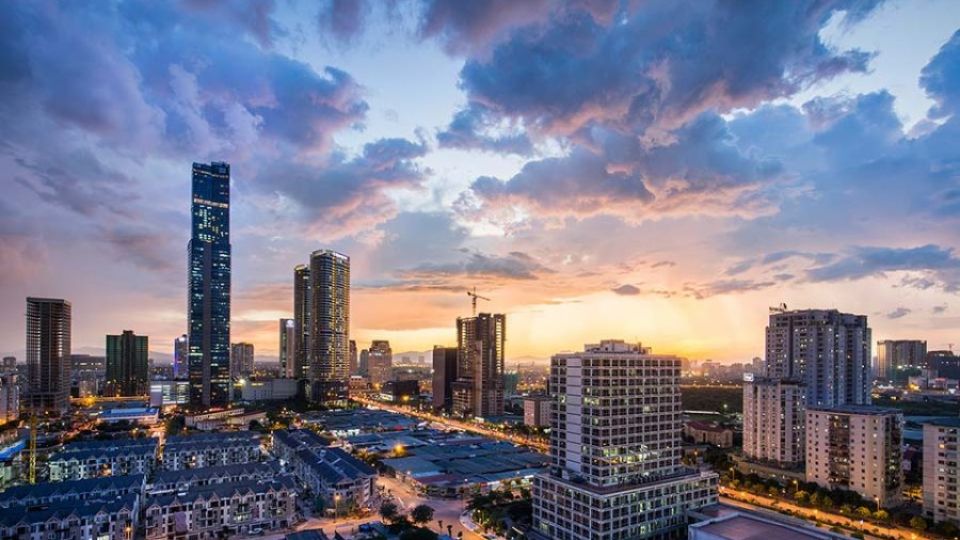November 27, 2024
SEOUL – Vietnam has positioned itself in recent years as an attractive destination for Big Tech companies looking to move away from China. But Hanoi’s policies regarding social media have increasingly been following Beijing’s lead.
The Southeast Asian nation is now ramping up already tight controls over online platforms with new rules that will require companies to verify the identities of users and share this information with authorities when asked.
If these sorts of digital regulations sound familiar, it may be because they echo a Big Brother-esque cyber identification scheme unveiled by Beijing earlier this year. The Chinese Communist Party’s rollout was met with international backlash over fears of government overreach, further surveillance and the erosion of free speech.
It’s not the first time Hanoi has imitated Beijing when it comes to cyber regulation. Still, Vietnam’s tech industry has spent years cashing in on the idea of not being its giant northern neighbor. Foreign investment has surged as firms capitalized on “China Plus One” strategies to diversify supply chains away from Chinese manufacturing. Vietnam has welcomed production from tech titans including Apple Inc., Meta Platforms Inc. and Samsung Electronics Co. But the latest crackdown on digital anonymity is a timely reminder that its single-party government still has a lot in common with the CCP.
Over the years, internet freedoms in Vietnam have been severely beaten back. The blow has been especially painful because there was a time when platforms like Facebook and YouTube gave a mouthpiece for people to disseminate information when traditional media outlets were forced to toe the party line. And while many were banned in China, they quickly gained a large user base in Vietnam. In the years that followed, however, a massive team of cyber-regulators was deployed to censor anti-party views online. Now, journalists face jail time for anti-government posts.
Vietnam was ranked 174 out of 180 on this year’s Reporters Without Borders’ World Press Freedom Index, behind China at 172. Hanoi is the world’s third-largest jailer of journalists, according to the nonprofit group, which cited Facebook as a major tool for circulating news.
Moreover, Vietnam’s new digital regulations also risk threatening business at an especially precarious time. The country was seen as a major winner from Donald Trump’s trade war with China in his first term. But success during Trump 2.0 is far from certain: The president-elect has threatened much wider tariffs of up to 60 percent on goods from China and 20 percent from everywhere else.
That could deal a devastating blow to Vietnam’s growth, and it could find itself caught in the crosshairs of greater scrutiny on goods originating from China that pass through its borders. The tariffs could cut Vietnam’s economic growth by up to 4 percentage points, Oversea-Chinese Banking Corp. economists have warned, back to levels at the height of the pandemic.
It also seems a particularly unwise moment for policymakers to implement complicated new regulations on foreign tech companies. Vietnam has recently sought to use these relationships to move up the tech value chain by attracting investments in more research and development labs, and data centers. The new decree is set to take effect on Dec. 25. It spans more than 200 pages and is incredibly wide-ranging. The American Chamber of Commerce in Vietnam said earlier this year that the most important factor to improve investments is a fair, transparent, predictable and streamlined regulatory environment. Adding to the uncertainty is local political turbulence and a yearslong anti-graft campaign that has yielded mixed results.
While the recent battles over internet freedoms carry numerous similarities to China, a key distinction is that many of the most widely used social networks in Vietnam originate from Silicon Valley. It would be refreshing to see a US tech company like Meta — its Facebook platform has more than 70 million users in the country — take a firmer stand against censorship. Perhaps understandably, Meta over the years appears to have chosen to bow to Vietnam’s requests rather than give up the market.
Vietnam’s government has spent decades calculating how much it can tighten the screws before scaring off business; the outcome this time remains to be seen. Battles over social media regulation are currently raging across the globe. After years deploying bamboo diplomacy and straddling the tech influences of China and the West, Vietnam is worth watching closely. For now, it seems Hanoi is swaying toward Beijing.
Catherine Thorbecke is a Bloomberg Opinion columnist covering Asia tech. The views expressed here are the writer‘s own.– Ed.


